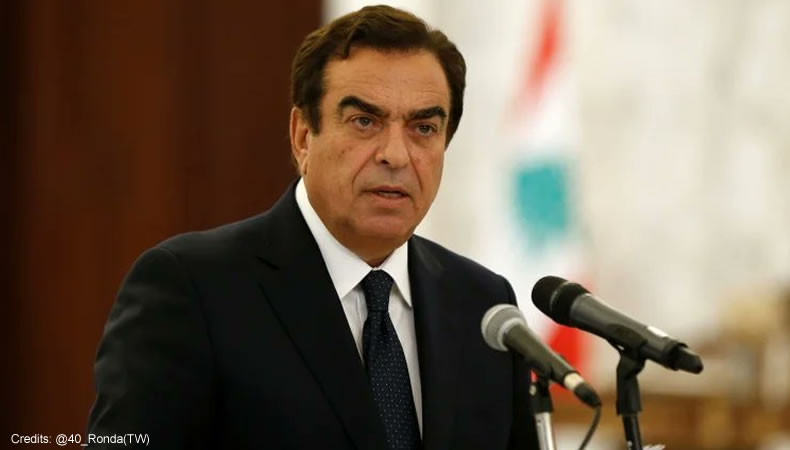Food insecurity pushes Lebanon towards subsistence agriculture


Recently the Minister of Information of Lebanon had made some rough comments on Saudi military’s involvement in the Yemen crisis which has led all the other gul nations to believe that Lebanon is sidelining its efforts to establish peace. Criticizing Saudi Arabia, George Kordahi said that Houthi rebels are defending themselves against the attack by the Saudi military.
“They are defending themselves against external attacks launched for years against Yemen,” said Kordahi, who is alo most notably known for being a former host of the Arabic version of the show Who Wants to Be a Millionaire?
The show is affiliated with state owned media network Al Jazeera and while speaking during the show, he addressed the Yemen issue as he criticised the gulf nation led by Saudi Arabia for the condition of the Yemeni citizens. He also said that whatever happened in Yemen is solely due to the aggression that it was subjected to.
He also went on to glorify the war crimes of Houthis saying that the iran-backed militia groups were merely defending itself. These comments were later televised and gulf nations have completely disregarded these allegations proving to be a huge blow for Lebanon who has been trying to sever ties with other neighboring countries.
The Lebanese administration is well aware of the damage that hsi statements have done to the progress that has been made and hence to avoid further fallout, Prime Minister Najib Mikati asserted that the interview where Kordahi made this statement was conducted over a month ago, which was before his cabinet was formed.
The call to sow seeds and till the land has been coming from political parties, celebrities and civil society groups who have been encouraging people to plant food crops in their land or at home. New projects have emerged that offer technical assistance in both farming and marketing practices for those who want to take this up, advising people on cheap and effective techniques to make the best of the land. People who had left their lands to come work in the city are heading back due to unemployment and are keen to once again make their livelihood from farming, much like their grandparents did.
But small initiatives like these are not nearly enough to avert the looming food crisis. Already there has been a substantial decrease in cropping this season due to shortage of dollars and a lack of access to credit which meant many farmers were not able to procure the supplies and equipment they need. Some estimates say the value of this year’s crops would be as much as 60 per cent lower than last year’s.
All eyes are on the government which is in the process of setting up a committee for rural development that will assess the country’s food needs and start procuring the essentials for the next planting season. Experts believe that the situation is dire across the food chain and, while these small-scale initiatives might help some people on an individual level, only the government has the reach and power to ensure the population has enough food to eat in the coming months.
Even those who are currently growing food in small parcels of land or rooftops gardens acknowledge this. They say they went down this path because of the need to depend on themselves in the face of increasing food shortages and hyper-inflation but agree it’s not sustainable in the long term, especially if the country as a whole is facing a hunger crisis. Community farming might just be an insignificant blip in the radar.



